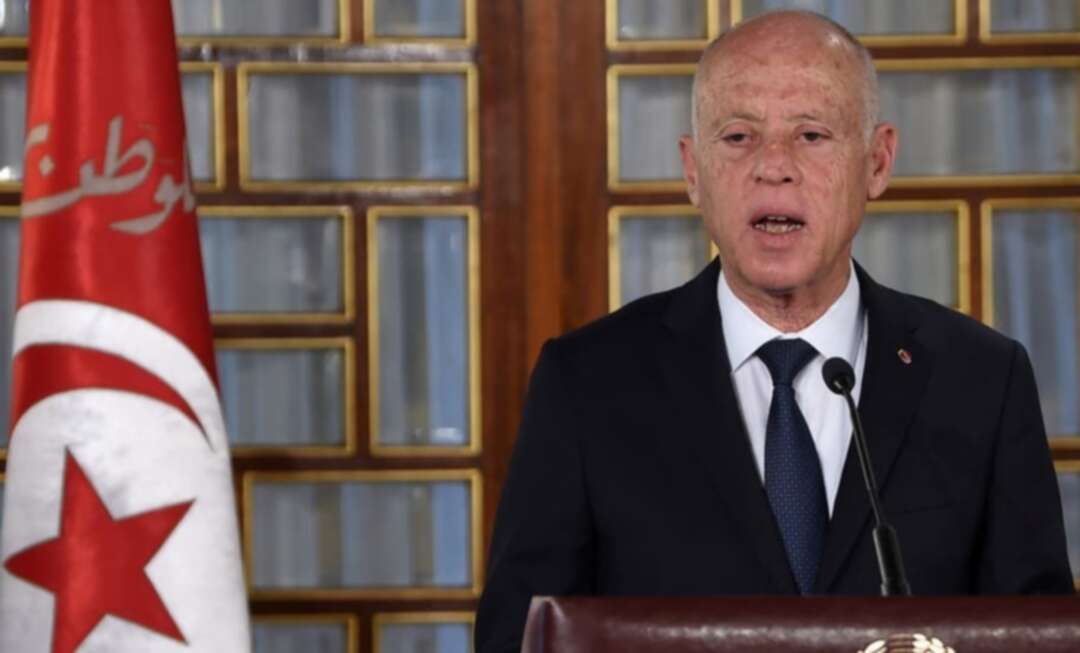-
Tunisia’s President Saied resists parliament’s bid to create constitutional court

Tunisia’s President Kais Saied said on Tuesday that he opposed parliament’s attempt to set up a constitutional court, which he said was merely a bid to settle scores.
A smooth transition from autocratic rule to democracy in 2011 brought about a new constitution in 2014, which provided for a court to be set up within a year to adjudicate constitutional disputes.
However, politicians have been unable since then to agree the names of 12 judges. Now, with President Kais Saied in deadlock with Prime Minister Hichem El Mechichi and Mechichi’s ally, Parliamentary Speaker Rached Ghannouchi, the speaker has launched a new bid to establish the court in the hope that it might end the political paralysis.
But in a speech on Tuesday, Saied said the deadline for this had expired.
“After more than five years, after a deep sleep, they’ve remembered about the Constitutional Court ... I will not accept a court formed to settle accounts,” he said.
“They have missed the deadlines ... Anyone wanting me to violate the constitution is looking for a mirage.”
The constitution requires the president, parliament and the judiciary each to name four judges to the court, which then needs the approval of parliament and the signature of the president.
Saied’s comments are likely to escalate the political tensions, just as Tunisia attempts to cope with the effects of the coronavirus pandemic, which has ravaged its economy and left it with a fiscal deficit of more than 11 percent last year.
The dispute has been building since the 2019 election delivered a fragmented parliament and brought a political outsider to the presidency.
Saied refused this year to approve a reshuffle that included the dismissal of ministers close to him including the interior minister, Taoufik Charefddine.
source: Reuters
Image source: Reuters
Levant
You May Also Like
Popular Posts
Caricature
BENEFIT Sponsors BuildHer...
- April 23, 2025
BENEFIT, the Kingdom’s innovator and leading company in Fintech and electronic financial transactions service, has sponsored the BuildHer CityHack 2025 Hackathon, a two-day event spearheaded by the College of Engineering and Technology at the Royal University for Women (RUW).
Aimed at secondary school students, the event brought together a distinguished group of academic professionals and technology experts to mentor and inspire young participants.
More than 100 high school students from across the Kingdom of Bahrain took part in the hackathon, which featured an intensive programme of training workshops and hands-on sessions. These activities were tailored to enhance participants’ critical thinking, collaborative problem-solving, and team-building capabilities, while also encouraging the development of practical and sustainable solutions to contemporary challenges using modern technological tools.
BENEFIT’s Chief Executive Mr. Abdulwahed AlJanahi, commented: “Our support for this educational hackathon reflects our long-term strategic vision to nurture the talents of emerging national youth and empower the next generation of accomplished female leaders in technology. By fostering creativity and innovation, we aim to contribute meaningfully to Bahrain’s comprehensive development goals and align with the aspirations outlined in the Kingdom’s Vision 2030—an ambition in which BENEFIT plays a central role.”
Professor Riyadh Yousif Hamzah, President of the Royal University for Women, commented: “This initiative reflects our commitment to advancing women in STEM fields. We're cultivating a generation of creative, solution-driven female leaders who will drive national development. Our partnership with BENEFIT exemplifies the powerful synergy between academia and private sector in supporting educational innovation.”
Hanan Abdulla Hasan, Senior Manager, PR & Communication at BENEFIT, said: “We are honoured to collaborate with RUW in supporting this remarkable technology-focused event. It highlights our commitment to social responsibility, and our ongoing efforts to enhance the digital and innovation capabilities of young Bahraini women and foster their ability to harness technological tools in the service of a smarter, more sustainable future.”
For his part, Dr. Humam ElAgha, Acting Dean of the College of Engineering and Technology at the University, said: “BuildHer CityHack 2025 embodies our hands-on approach to education. By tackling real-world problems through creative thinking and sustainable solutions, we're preparing women to thrive in the knowledge economy – a cornerstone of the University's vision.”
opinion
Report
ads
Newsletter
Subscribe to our mailing list to get the new updates!






















